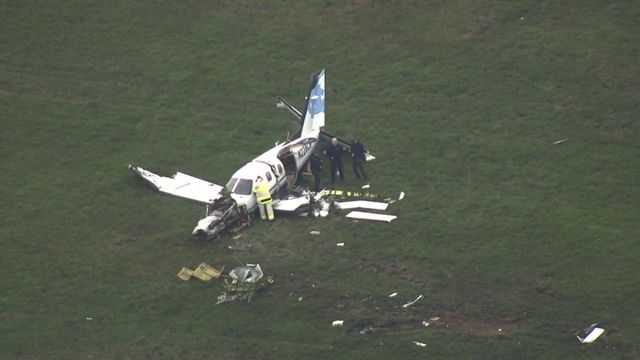Voter ID preview
A panel discussion hosted by a conservative lawyers group provided a preview of this year's Voter ID debate.
Although it hasn't been filed yet, lawmakers expect to hear and pass a bill to require voters to show photo identification at the polls this year.
Former Gov. Bev Perdue, a Democrat, vetoed a voter ID proposal during the last legislative session. Gov. Pat McCrory, a Republican, said during the 2012 campaign that he supported such a requirement.
The Federalist Society's Triangle Chapter hosted a round table discussion with four experts that previewed many of the arguments lawmakers may hear this year.
Hans von Spakovsky: Senior Legal Fellow/Manager, Civil Justice Reform Initiative, The Heritage Foundation
Spakovsky is a proponent of voter ID legislation.
"All these claims that it will suppress the vote...we know are not true," Spakovsky said.
He pointed to Georgia, which enacted a voter ID law in 2006. Data from that state, he said, showed that over six years only about 26,000 people applied for a free state-issued ID.
Spakovsky also criticized a a North Carolina State Board of Elections study that found as many as 612,955 voters might lack ID, saying it failed to properly differentiate between active and inactive voters.
He said that when properly accounted for, the number of voters without ID "probably drops to almost nothing."
Bob Hall: Executive Director, Democracy North Carolina
Hall has been a fixture in North Carolina's voter ID debate for the past few years. Hall said that in 2011, Democracy NC almost wrote off the voter ID debate, figuring that the Republican-lead General Assembly would pass it regardless.
"We talked to people we work with in the African American communities and they said, 'Hell no, you've got to speak up about this,' " Hall said.
By itself, a voter ID measure wouldn't have been a non-starter. But paired with other measures like ending Sunday voting and limiting one-stop early voting and registration it smacked of an attempt to limit the ability of poor communities to vote.
"It really began to look like an attempt to exclude certain groups of people," Hall said.
Hall acknowledged that the number of voters without ID is likely smaller than the numbers the state Board of Elections came up with. But he said even if the percentage was small compared to the state's 6.4 million voters, thousands could encounter problems.
"You need to have a real compelling reason to have a strict barrier in front of people," Hall said.
Hall argued that all incidents of in-person voter fraud amount to 5 per 1 million; while incidents of mail-in voter fraud occurred roughly 35 per 1 million votes cast. But even given that, he said, GOP lawmakers were still focused on in-person voting. The difference, he said, seems to be that more Republican voters use mail-in ballots, while more Democratic voters used early in-person voting.
"That's a nagging tip off that there's some partisan issue here," he said.
John Fund: National Affairs Columnist, National Review
Fund cited a WRAL News poll that showed some 69 percent of respondents favored voter ID.
"This has been consistent across the country," Fund said. "In national polls ... concern about this issue is actually higher among minorities."
In Rhode Island, where Democrats helped lead the effort to create a voter ID law he said, fewer than 25 voters in a recent election lacked the needed ID in order to vote.
Fund argued that in the long run, voter ID would help people. That's because government-issued identification is needed for everything from cashing a check to entering a court house.
"You can't be part of the mainstream of American life, of American public life, without an ID," Fund said, adding that the state would be "doing people a favor."
Fund said that voter fraud is hard to prove, which is why there is little evidence. That doesn't mean it doesn't happen, he said.
Allison Riggs: Staff Attorney, Voting Rights, Southern Coalition for Social Justice
Riggs argued that before lawmakers enact voter ID provisions, they should weigh the cost to voters and the state against the cost of the incidents of voter fraud that are known.
For example, she said that voters in some parts of North Carolina would have to drive 70 to 100 miles in order to obtain free IDs provided in the 2011 voter ID bill. At least one court, she said, had found that kind of burden on the poor unacceptable.
In North Carolina, she said, poor and minority voters were more unlikely to have ID, and imposing a identification requirement for voting would be a hurdle some could not get over.
"It adds to this perception that politicians are choosing the people who vote for them," she said. (It's worth noting, as Fund pointed out in the discussion, other courts have found that travel costs aren't an overly onerous burden.)
She said that the state should take steps to secure its voter lists and limit fraud.
"What I'm not okay with is disenfranchising eligible voters ... One legitimate voter turned away is too many," she said.









